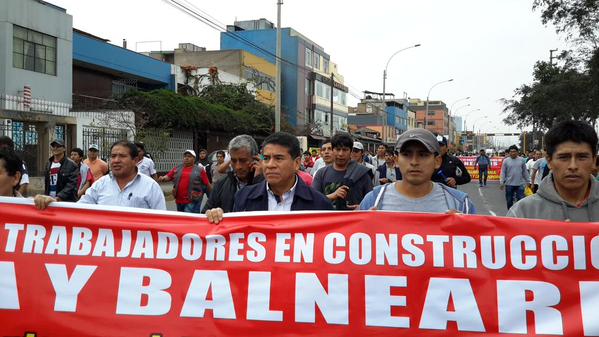
Jul 24, 2015
One construction union leader was killed and another injured as the men left a union organizing meeting in Casma, Peru, this week.
Miguel Cotelo Villanueva, a member of the Federación de Trabajadores en Construcción Civil de Perú (Federation of Civil Construction Workers of Peru, FTCCP), Peru’s largest construction union, is the most recent of 14 construction union leaders murdered in the past five years. Victor Rodas, another FTCCP union leader, was murdered on July 10 in similar circumstances.
Union leaders say the violence stems from groups that have set up fake construction unions and are waging attacks on FTCCP leaders and members if they do not participate in their extortion schemes. According to FTCCP Social Security Secretary Félix Rosales, Cotelo and FTCCP General Secretary Silvestre José Mota, who was injured in the attack with Cotelo, received death threats by phone and text after they refused to take part in extortion activities.
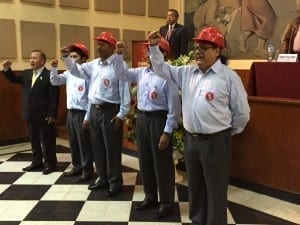
STCCLB leaders are sworn in to office after a union election. Credit: Solidarity Center/Samantha Tate
The FTCCP is a member of the Confederación General de Trabajadores del Perú (General Confederation of Workers in Peru, CGTP), and both are calling for a meeting with government officials and employers to address the issue of fake unions, and are asking the Ministry of Labor to remove the fake unions from its records.
Buenaventura Vera Perez, secretary-general of the Lima and Environs union (STCCLB), says the violence is in part a campaign to eliminate collective bargaining rights, because the FTCCP and its affiliates are the only unions that negotiate collectively.
“There is no political will to end the violence,” Buenaventura says. “Authorities say that they don’t know where the guilty parties are, which is ridiculous. We have given the police names. Until when do we have to live with this constant threat?”
Perez made his remarks yesterday at a swearing-in ceremony for STCCLB leaders, who were elected after 4,370 construction workers cast their votes in democratic elections
Also speaking at the ceremony, CGTP Vice President Juan José Gorritti says that while the government sends police to target and even assault anti-mining protestors, the government does not dispatch the officers to address the violence in the construction industry and ensure safety for the workers.
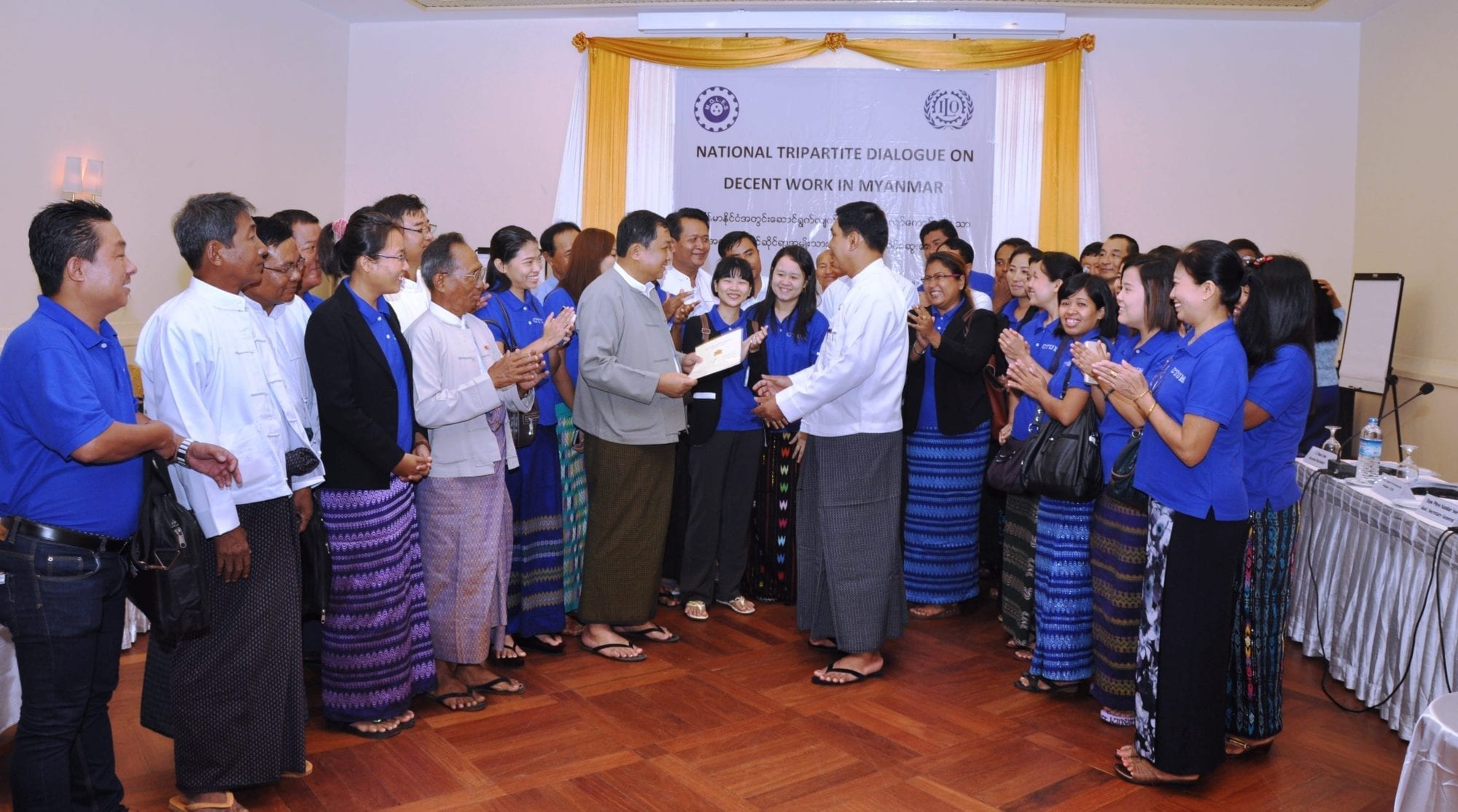
Jul 23, 2015
Fabulous news for working people in Myanmar: The government has officially recognized the Confederation of Trade Unions of Myanmar (CTUM), and registered the federation as representing “all Myanmar.”
In a ceremony today, CTUM President Maung Maung and other union leaders received the registration papers, with Maung Maung thanking “everyone who made this vision of ours come true.”
After a violent military crackdown on pro-democracy demonstrators that forced thousands of Burmese activists into prison or exile, Maung Maung spent 24 years in Thailand nurturing the union movement as general secretary of the Federation of Trade Unions – Burma (FTUB), now CTUM. In those difficult years, the FTUB was sustained in part through the international labor movement, the AFL-CIO, and the Solidarity Center. He returned to Myanmar in September 2012 after the government removed more than 2,000 people from a list of more than 6,000 pro-democracy supporters banned from entering the country.
CTUM is now working in 10 states across the country, “delivering basic training about the international trade union movement,” says Maung Maung.
“Workers want to understand how they can demand their rights.”
In a new Solidarity Center video, Maung Maung describes how the many years of keeping alive the union movement are now bearing fruit.
“Group meetings with workers can now be held freely where we can openly discuss issues such as the minimum wage law. This is what we have achieved.”
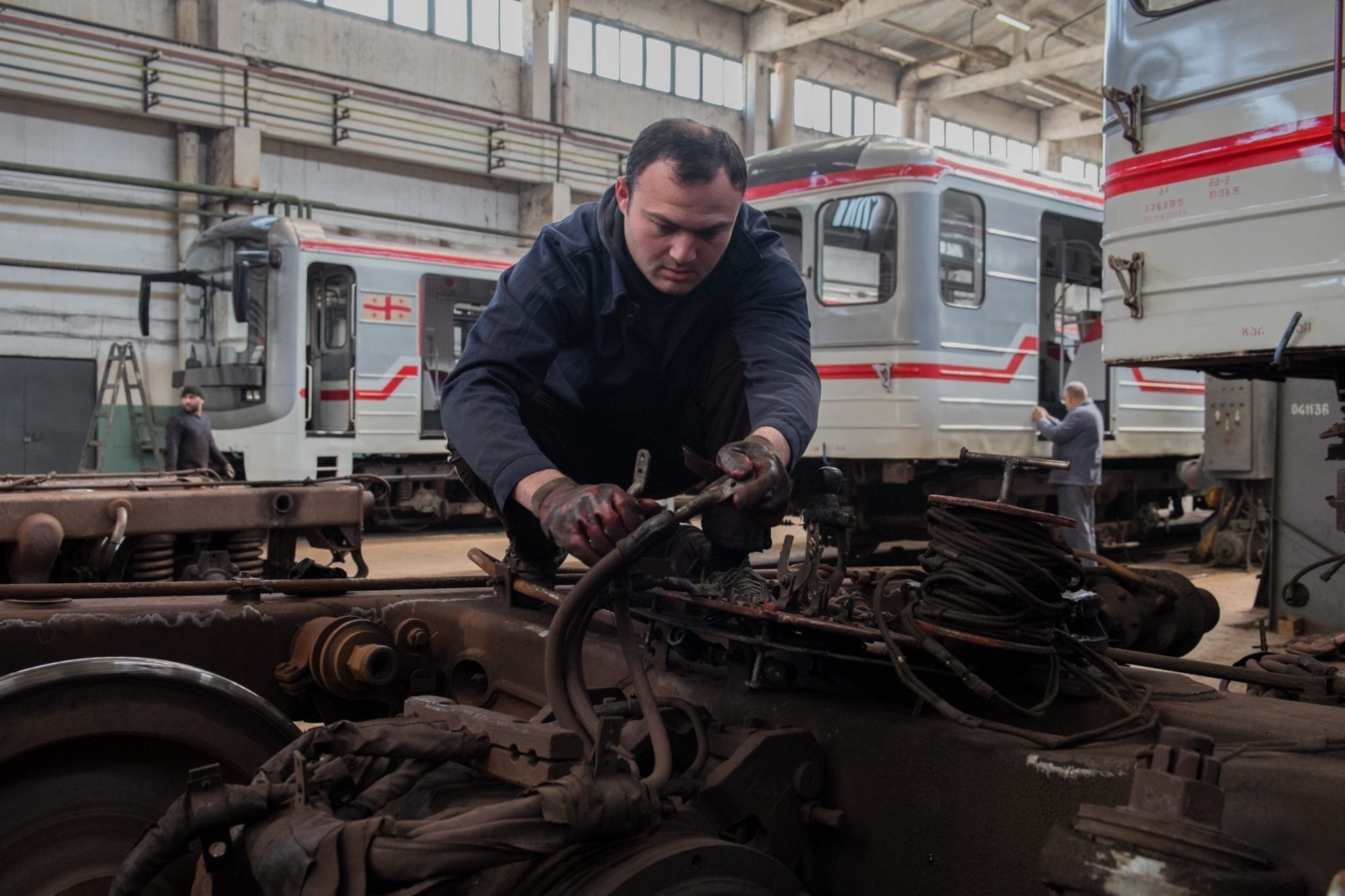
Jul 23, 2015
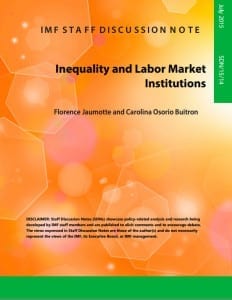 The notion that unionization and higher wages decrease income inequality is a fundamental premise of the Solidarity Center and our allies. But now a surprising source has reached the same conclusion: the International Monetary Fund (IMF).
The notion that unionization and higher wages decrease income inequality is a fundamental premise of the Solidarity Center and our allies. But now a surprising source has reached the same conclusion: the International Monetary Fund (IMF).
“The decline in unionization is related to the rise of top income shares and less redistribution, while the erosion of minimum wages is correlated with considerable increases in overall inequality,” the IMF concludes in a newly released “staff discussion note.”
According to Inequality and Labor Market Institutions, a steep decline in union density is followed by a 1.8 percent increase of top incomes and a 3 percent decline for workers’ share over the ensuing five years. Further, “if de-unionization weakens earnings for middle- and low-income workers, this necessarily increases the income share of corporate managers and shareholders.” The study examined 20 advanced economies between 1980 and 2010.
Declining union strength “appears to be associated with less income redistribution, likely through a reduced influence of unions on public policy,” says Florence Jaumotte, an economist and co-author of the publication. Not to mention another fact: unions help raise wages, both for members and the community at large.
Long a bastion of pro-employer policies, the IMF is not willing to go so far as to recommend the obvious. Acknowledging its findings can “suggest that higher unionization and minimum wages can help reduce inequality,” the IMF dodges the logical conclusion to pursue such policies, saying its data “do not constitute a blanket recommendation for more unionization or higher minimum wages.”
The IMF study notes that such decisions should be made on a country by country basis—leaving the reader to presume that countries supporting shared prosperity among all citizens will enable their workers to form unions, and ensure a living wage for all.
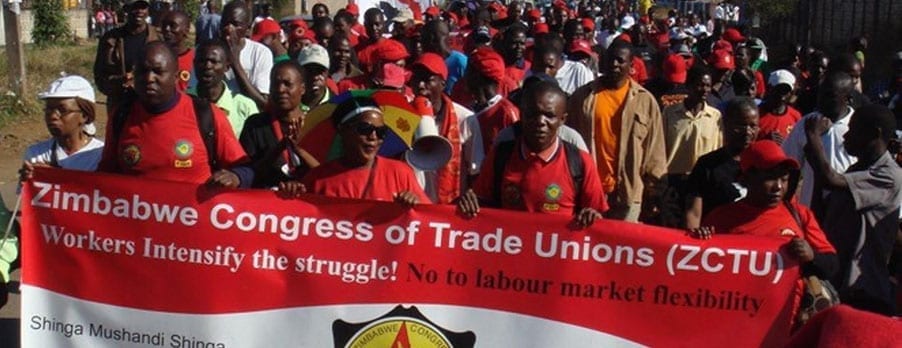
Jul 22, 2015
The Supreme Court of Zimbabwe upheld a decision late last week stating that companies can now terminate workers’ contracts at any time, without offering them layoff benefits, by giving them three months’ notice.
The unanimous decision “has grave consequences for anyone under formal employment,” according to one news source and comes “at time when business is crying for flexible labor laws in order to improve industrial competitiveness,” according to another analysis. Employers often use the term “flexible” as a euphemism to describe workplace policies that benefit management at the expense of working people.
Noting that many jobs already have been lost in the days after the court ruling, the Zimbabwe Congress of Trade Unions (ZCTU) said in a statement that the judicial action is the latest in a series to “casualize” workers—that is, create an environment in which formal-sector workers, like those working in the informal economy, have few workplace rights
“The ruling will have an adverse effect of destroying the gains achieved over the past 35 years, with far-reaching economic” consequences, ZCTU said. Zimbabwe’s union movement is planning street protests until the government takes action to resolve the issue.
The case was brought by Kingstone Donga and Don Nyamande, who cited unfair dismissal and contract termination by their former employer, Zuva Petroleum. The employees argued that the Labor Relations Act had abolished the employer’s common law right to terminate an employment contract on notice. The court agreed with the employer.
More than 72 percent of Zimbabweans live in poverty, and the vast majority of the country’s nearly 15 million people are not employed in the formal economy. Rather than creating opportunities for stable, decent jobs in the formal sector, the ruling creates further economic destabilization.
Under Zimbabwe’s Labor Act, “every employee has the right not to be unfairly dismissed,” and the law details the process employers must follow when seeking to terminate an employee.
One analyst notes that employers will still need to exercise caution when they terminate employment on notice because there is still scope for them to be challenged on grounds of unfair dismissal. For example, a group of employees fired when pregnant would have cause to bring a discrimination suit for unfair dismissal.
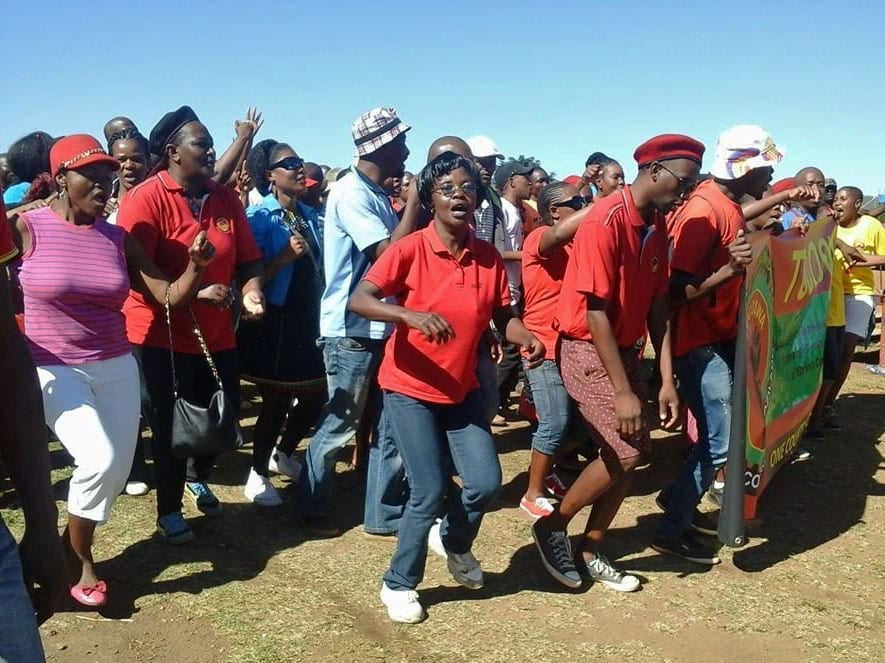
Jul 14, 2015
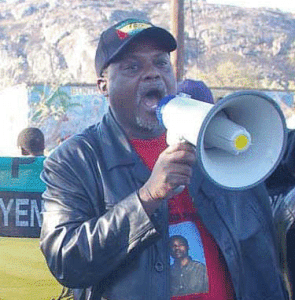
Swazi human rights leader Mario Masuku was released from prison today. Credit: Links
Imprisoned Swazi human rights leader Mario Masuku and student activist Maxwell Dlamini were granted bail today by the Supreme Court of Swaziland, according to the Trade Union Congress of Swaziland (TUCOSWA). The two were charged with terrorism and jailed in May 2014 for slogans they allegedly shouted at a May Day rally.
Masuku and Dlamini were awaiting trial, and if found guilty, each could have faced up to 15 years of hard labor. Masuku, who became seriously ill in prison, was twice denied bail and prison officials would not allow his doctor to see him. In a statement, TUCOSWA praised the release of the two men, noting, “these are but a few steps, which though appreciated, must tell all of us not to lessen our resolve for change in Swaziland.”
The action follows the acquittal and release early this month of Thulani Maseko and Bheki Makhubu. Maseko, a human rights lawyer, and Makhubu, a newspaper editor, were arrested in March 2014 for writing about government corruption and judicial independence and were serving two-year prison terms.
TUCOSWA continues to be a consistent leader in support of union leaders, journalists and human rights activists who have been threatened with violence, arrest, prosecution for their human rights advocacy. Swazi police have harassed members of TUCOSWA, a Solidarity Center ally, breaking up their union meetings and banning rallies.
In May, an international delegation of union leaders traveled to Swaziland, calling on the government to guarantee the rights of workers to freely form unions and exercise freedom of speech and assembly. Led by Wellington Chibebe, International Trade Union Confederation (ITUC) deputy general secretary, and joined by Jos Williams from the AFL-CIO Metropolitan Washington Labor Council and Richard Hall from the Solidarity Center, the fact-finding group found that repressive legislation used by police against union activities had not been addressed by Parliament, even as the government continues to imprison human rights activists for exercising their right to freedom of speech.
Just days before the delegation arrived on May 14, the Swaziland government announced it had registered TUCOSWA after a three-year delay since the federation’s founding.





 The notion that unionization and higher wages decrease income inequality is a fundamental premise of the Solidarity Center and our allies. But now a surprising source has reached the same conclusion: the International Monetary Fund (IMF).
The notion that unionization and higher wages decrease income inequality is a fundamental premise of the Solidarity Center and our allies. But now a surprising source has reached the same conclusion: the International Monetary Fund (IMF).

